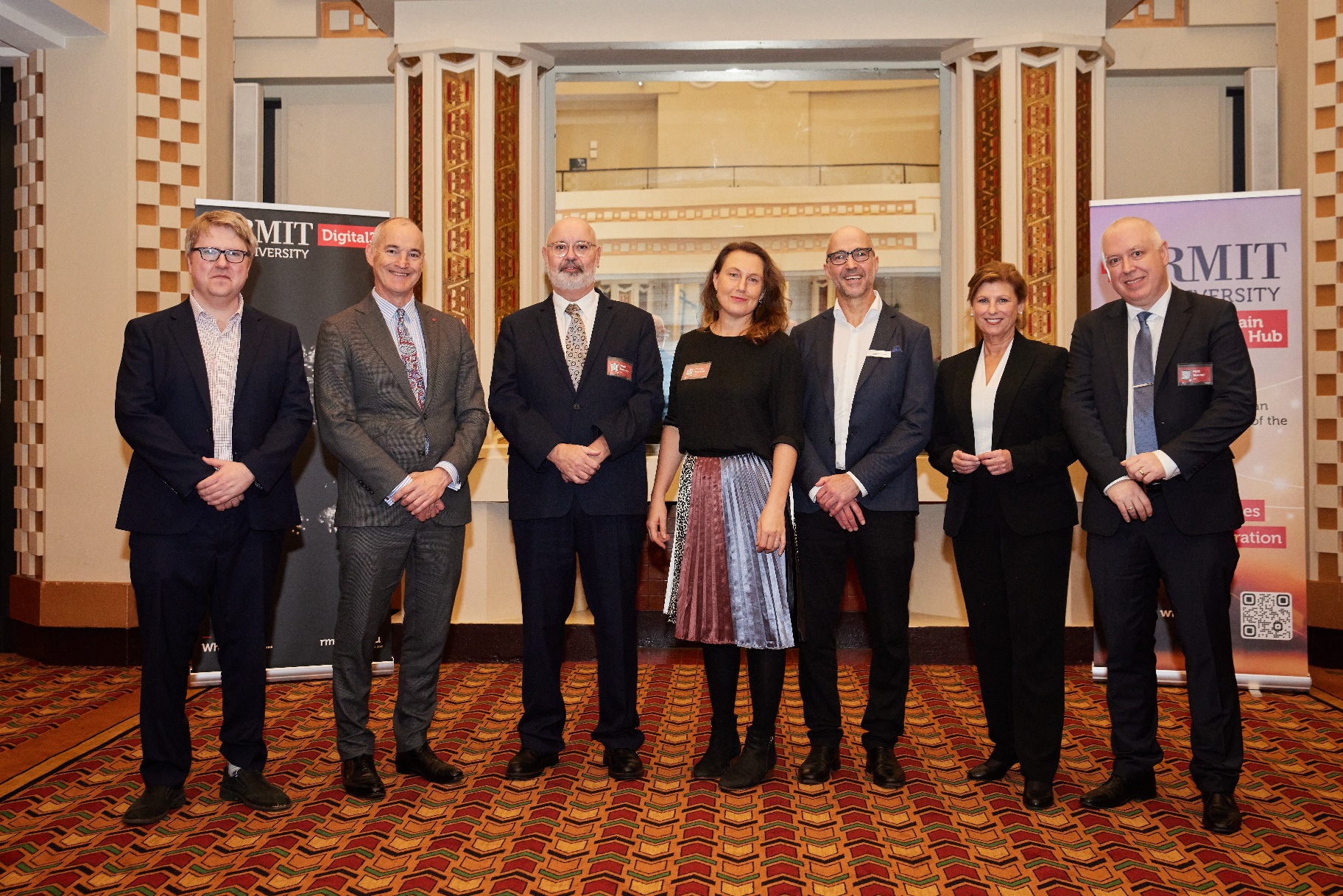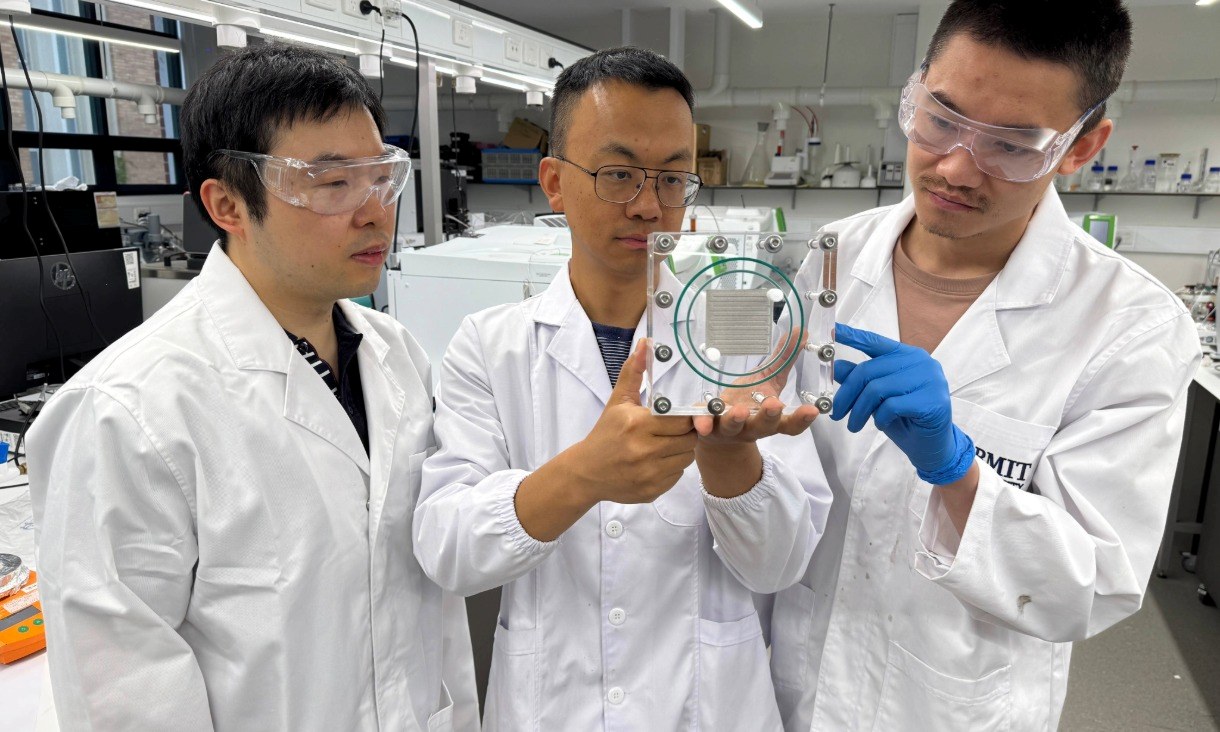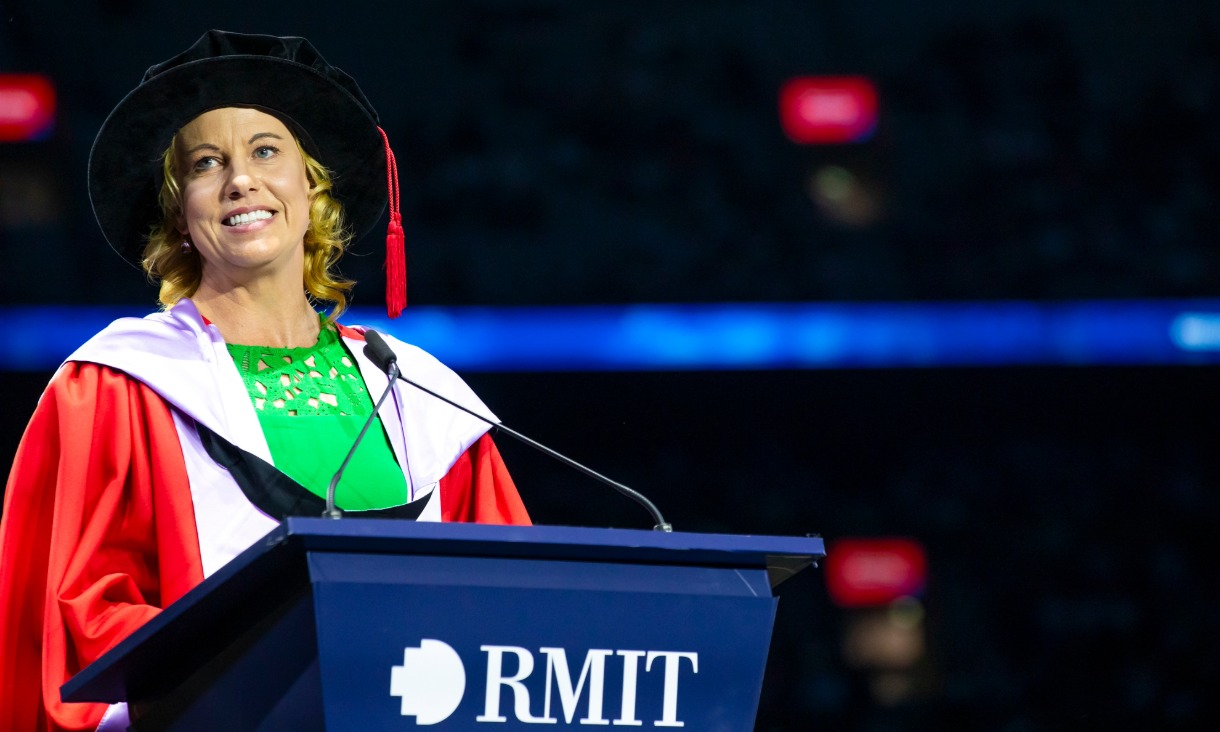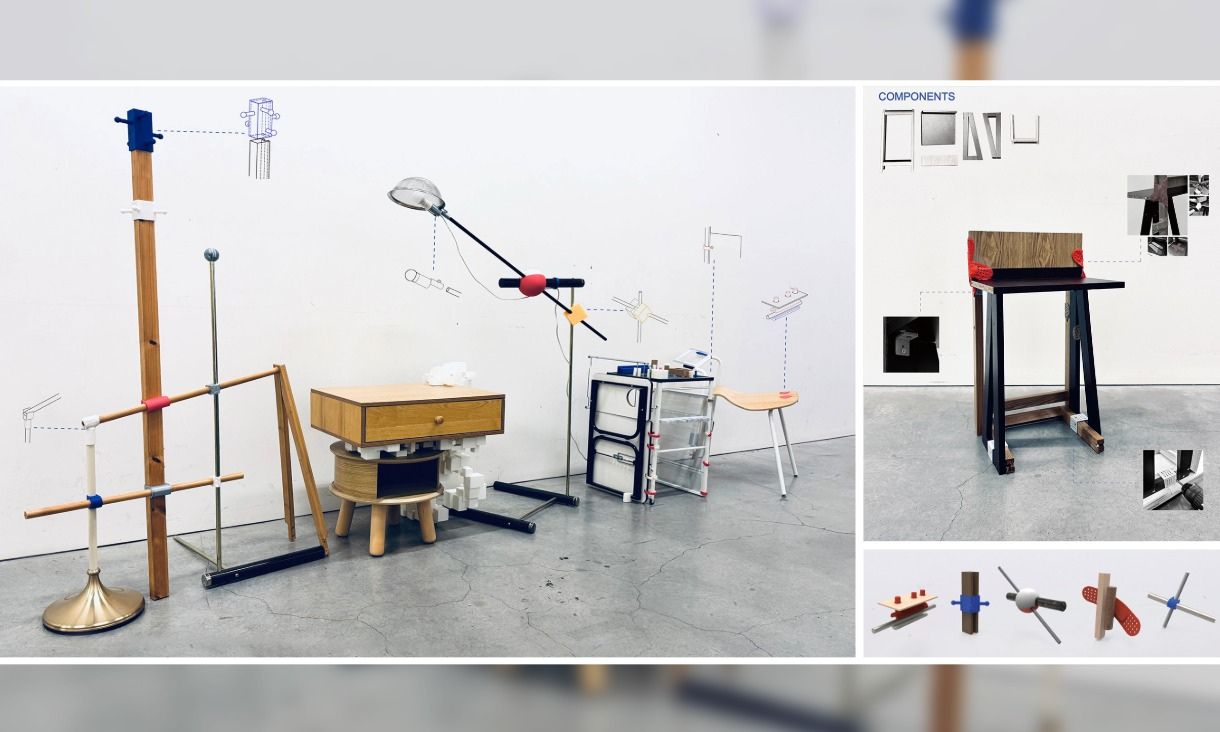New carbon-conversion technology could turn emissions into jet fuel
RMIT researchers have developed a carbon conversion technology that may one day help turn industrial emissions into jet fuel, by simplifying how carbon dioxide is recycled.
Louise Adams recognised with honorary doctorate at 2025 graduation
RMIT has awarded Louise Adams, Aurecon Chief Executive Officer, the Doctor of Business honoris causa, acknowledging her leadership in engineering, gender equality and Australia’s partnership with Vietnam.
New micro-credentials recognise 21st-century skills gained through youth arts programs
Young people who participate in arts programs develop highly sought-after workplace skills – and now they have a way to prove it.
RMIT student wins Best in Category at Victorian Premier’s Design Awards
A sustainable furniture system using digital fabrication techniques and repurposed furniture waste has won Best in Category for Student Design at the Victorian Premier’s Design Awards alongside over twenty RMIT-affiliated projects recognised at this year’s awards.








